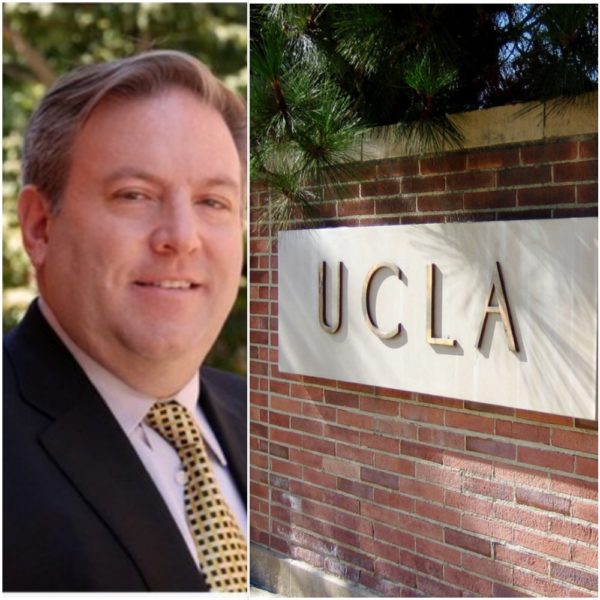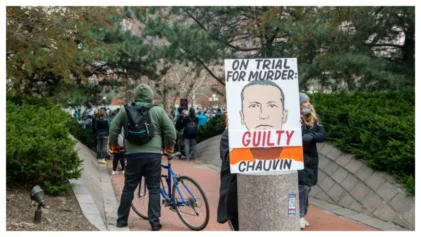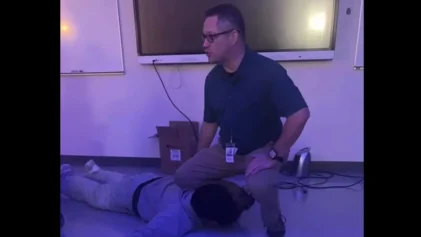A white student’s request for a UCLA professor to show “compassion” to Black students in the aftermath of George Floyd’s murder devolved into chaos. A UCLA professor is suing the University of California system after being threatened, called a racist and dealt a temporary suspension after refusing to show Black students leniency on their final exam.

The lawsuit filed on Sept. 27 lists Klein’s complaint as follows:
- Breach of contract;
- Violation of right to privacy by public disclosure of private light;
- Violation of right to privacy by placing plaintiff in a false light;
- Retaliatory discrimination in violation of labor code 1102.5(c);
- Common law retaliation in violation of public policy;
- Negligent interference with prospective economic advantage; and
- Breach of employer’s statutory duty of political neutrality.
The controversy unfolded last year in the wake of George Floyd’s death and subsequent civil unrest that spread across the country amid the already turbulent times of the COVID-19 pandemic.
The professor, George Klein, who teaches finance and accounting law, says on June 2, 2020 — eight days after Floyd died while white Minneapolis officer Derek Chauvin kneeled on his neck for nearly 10 minutes — he received an email from a white student requesting he issue a “no-harm” exam to Black students ahead of the close of the spring semester. The request would allow for the students’ final only to be counted if it boosted that student’s grade.
The student wrote, “We are writing to express our tremendous concern about the impact that this final exam and project will have on the mental and physical health of our Black classmate.”
The student went on to add that Floyd’s death compounded with the death of Ahmaud Arbery and Breonna Taylor were all incidents disproportionately impacting the Black community, including their Black classmates.
This is “not a joint effort to get finals canceled for non-black students, but rather an ask that you exercise compassion and leniency with black students in our major,” the student added.
The student requested the professor decide between “actively supporting our black classmates or focusing on finishing up our spring quarter” because staying “neutral in times of injustice brings power to the oppressor.”
Klein responded to the student, quoting MLK and implying that white students may possibly be “even more devastated” by Floyd’s death because others may wrongly assume that they’re racist.
“Thanks for your suggestion in your email below that I give black students special treatment, given the tragedy in Minnesota. Do you know the names of the classmates that are black? How can I identify them since we’ve been having online classes only? Are there any students that may be of mixed parentage, such as half black-half Asian? What do you suggest I do with respect to them? A full concession or just half? Also, do you have any idea if any students are from Minneapolis? I assume that they probably are especially devastated as well. I am thinking that a white student from there might be possibly even more devastated by this, especially because some might think that they’re racist even if they are not. My TA is from Minneapolis, so if you don’t know, I can probably ask her. Can you guide me on how you think I should achieve a “no-harm” outcome since our sole course grade is from a final exam only? One last thing strikes me: Remember that MLK famously said that people should not be evaluated based on the “color of their skin.” Do you think that your request would run afoul of MLK’s admonition? Thanks, G. Klein”
The student followed up with an apology for “asking you give preferential treatment to people because they are Black. I just wanted to raise awareness for everyone right now because it is tough times.”
Following the apology, Klein faced online ridicule by other outraged students who called for his termination by launching a petition with more than 21,000 signatures.
By June 5, the Office of the Dean sent students a message notifying them that Klein had been placed on leave while administrators looked into the incident.
The message stated, “We understand what an incredibly stressful time this is for students who must take finals in the midst of both COVID-19 and civil uprisings over racial injustice.”
Klein says days later, around June 11, he began to be taunted by threatening emails and voicemails. Some of the messages included, “You are a typical bigoted prejudiced and racist dirty, filthy, crooked, arrogant Jew kike mother’s——r!” The threats were concerning to the point of Klein requesting police be stationed outside his home.
While the suspension lasted only three weeks, Klein’s decision to sue rested in part because his income from law firms and corporations as a consultant was dealt a heavy blow.
“Several of those firms dropped me after they got wind that I’d been suspended — the better to put distance between themselves and a “racist.” That cost me the lion’s share of my annual income,” he stated in an op-ed detailing the rationale for his suit.
As outlined in “Grading Policy in the Time of COVID-19 Considerations and Implications for Equity” document from the California Collaborative on District Reform, the general idea of the “do no harm” policy is to ensure that “any decision should first and foremost avoid damage to students’ educational opportunities or academic standing due to circumstances beyond their control.”
“Do no harm” concessions were prevalent in 2020, thanks to the pandemic. Universities and colleges around the country offered a pass/fail option to students.
Duke University told students and faculty in a letter announcing the decision in Spring 2020, “This is a moment that has been characterized by widespread anxiety, uncertainty, social, and geographic disruption. As academic leaders of this great university, we believe that bold action is necessary to maximize undergraduates’ curricular engagement.”


